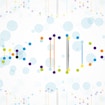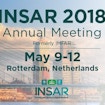The SFARI Bridge to Independence (BTI) program engages talented early-career scientists from diverse and/or historically underrepresented backgrounds to pursue research in autism and facilitates their transition into independent faculty positions at research institutions within or outside the U.S.
The program is aimed at Ph.D. and/or M.D.-holding scientists from diverse and/or historically underrepresented groups in science who are currently in a non-independent, mentored training position at an institution within or outside the U.S. and who will be actively seeking and applying to tenure-track faculty positions between September 2024–May 2025. Independence Fellows are expected to apply, secure and transition to a tenure-track faculty position at a research institution within or outside the U.S. by the end of the 2025–2026 academic year. U.S. citizenship or permanent resident status is not required. The BTI Award program welcomes applications that span the breadth of science that SFARI supports, including genetics, molecular mechanisms, circuits and systems, and clinical science.
Independence Fellows will receive up to two (2) years of postdoctoral fellowship support during their job search, with an annual salary of $85,000 USD, fringe benefits, an annual resource and professional development allowance of $10,000 USD, and indirect costs (see our grant policies) followed by a commitment of $600,000 USD over three (3) years, including indirect costs (see our grant policies), activated upon assumption of a tenure-track research professorship. The fellows will form a learning community and engage in professional development activities throughout their transition to research independence.






